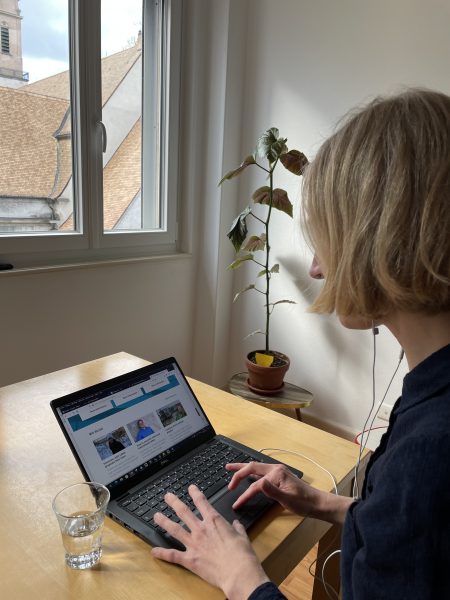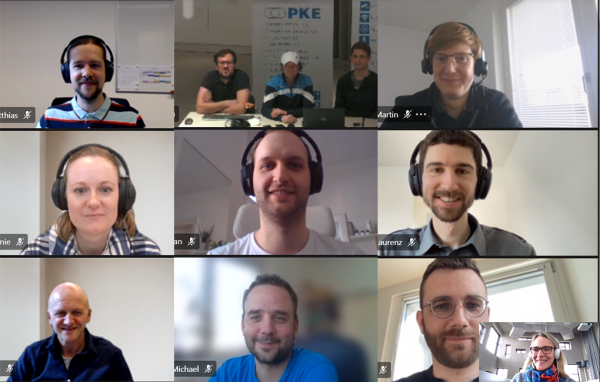Life Skills: What you need to excel at uni life and not ‘just manage’
Student life can be demanding: meeting your own expectations, maybe part-time work or already building a career, some have to cope with a chronic illness. Besides, you should also have flourishing relationships and make the most of your leisure time. Balancing the fine line between self-care and self-optimization pressure is definitely a learning field.
How to set yourself up for a good university experience
In this article, we would like to present three topics that, in our experience in the Student Counselling Program at WU, are important for students so that they can create a good university life for themselves.
The most important message of this article is: everything can be learned. If you have a problem with stress, distractions, or emotional overwhelm, you are not alone. These ‘symptoms’ are a manifestation of our culture and how we have (not) learned to listen to ourselves.
Life skills can be learned
To find your own way of handling all of the above mentioned expectations, demands and stresses of life, special competencies are needed: Life Skills. University programs are preparing students in terms of expert knowledge and skills for their future careers. Beyond that, it can, however, also be helpful to strengthen your life skills during your college time. These refers to competencies that allow a person to find a healthy way of dealing with challenging issues in different situations and contexts.
The WHO defines life skills as “abilities for adaptive and positive behavior that enable individuals to deal effectively with the demands and challenges of everyday life.” In the context of the Student Counselling Program at WU, three main topics have emerged as having a strong impact on students’ experience:
- A healthy way of dealing with stress,
- developing an effective approach to handle their emotions, and
- attention management.
Good stress management
Stress is not necessarily negative: the body provides extra energy to overcome a challenge. However, if the felt level of stress that a person experiences falls in the category of “overwhelming,” it becomes difficult to achieve the desired goal or learn in a focused way. Also a person’s ability to rest and recover is negatively impacted. Sleep may suffer too.
Stressful phases are normal but should not be permanent. Breathing techniques have proven to be particularly helpful in handling these stressful periods. Through conscious breathing and a little knowledge of how breathing influences our stress level and subjective experience, everyone can learn to influence their own stress response and find a healthier way of dealing with stress.
Using your emotional compass
Just like stress, emotions are also relevant for us to find our path in life: What am I interested in, what am I drawn to? In which situations is it better to take a step back or bypass a situation? What does my anger tell me about what is not right for me? Ideally, emotions are a compass that help you navigate through life.
Mixed with stress and our opinions about which feelings are good or bad – i.e. if they are welcome or better turned off – it’s easy to experience emotional overwhelm. And that, in turn, might blend into global and collective issues that may also be reflected in our moods. The result is a feeling of “It’s just too much!”
Emotional self-management has many layers: it includes recognizing your triggers to deciphering what the helpful ‘message’ of your emotional compass could be. It also involves training your own capacity to allow the intensity of feelings in your body.
Attention management
The topic of attention is perhaps the most pervasive and subtle of the three. The current technology-dominated world we live in makes it very difficult for us to be the masters of our attention. Our smartphones are constantly signaling us where we should focus our attention. As a result, we tend to act as consumers in life rather than active co-creators of our own experience.
Here, too, it is important to strike the balance of having relevant data points and at the same time develop an attention practice that allows us to consciously decide who or what we pay attention to, and how long we can keep our focus.
In the end, all elements – stress, emotion and attention – weave into each other and influence our experience. Depending on where you’re at right now, you can work on one of these topics to find the most effective and easiest ways to be more self-reliant and increase your sense of agency.
Life skills workshops at the Student Wellbeing Days 2024
Do you want to strengthen your life skills? On April 8, WU students have the opportunity to participate in the following mini workshops as part of the first Student Wellbeing Days:
- Stress regulation with the Wim Hof method
- Emotional self-management
- Attention Management Basics
You can find the entire program for the Student Wellbeing Days 2024 here.




















